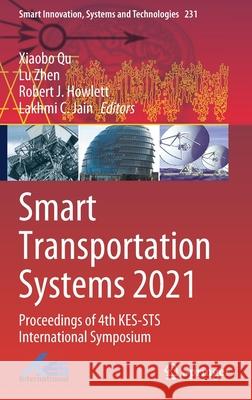Smart Transportation Systems 2021: Proceedings of 4th Kes-Sts International Symposium » książka
topmenu
Smart Transportation Systems 2021: Proceedings of 4th Kes-Sts International Symposium
ISBN-13: 9789811623233 / Angielski / Twarda / 2021 / 182 str.
Kategorie:
Kategorie BISAC:
Wydawca:
Springer
Seria wydawnicza:
Język:
Angielski
ISBN-13:
9789811623233
Rok wydania:
2021
Wydanie:
2021
Numer serii:
000405987
Ilość stron:
182
Waga:
0.45 kg
Wymiary:
23.39 x 15.6 x 1.27
Oprawa:
Twarda
Wolumenów:
01
Dodatkowe informacje:
Wydanie ilustrowane











